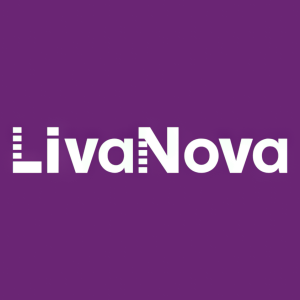LivaNova Receives FDA Approval for Clinical Study to Evaluate the aura6000 System to Treat Obstructive Sleep Apnea
LivaNova PLC (NASDAQ:LIVN), a market-leading medical technology and innovation company, today announced it has received approval from the U.S. Food and Drug Administration (FDA) to proceed with its investigational device exemption (IDE) clinical study, “Treating Obstructive Sleep Apnea using Targeted Hypoglossal Neurostimulation (OSPREY).” The OSPREY study will seek to demonstrate the safety and effectiveness of the aura6000® System, the LivaNova implantable hypoglossal neurostimulator intended to treat adult patients with moderate to severe obstructive sleep apnea (OSA).
An innovative alternative to the traditional continuous positive airway pressure (CPAP) machine, the aura6000 System generates stimulation through a programmable, rechargeable and implantable pulse generator (IPG). The IPG is implanted in a subcutaneous pocket near the clavicle of the patient via an outpatient surgery. Mild stimulation pulses from the IPG are delivered via a lead to the hypoglossal nerve to stimulate the tongue during sleep and help keep the patient’s airway open. With the aura6000, there are no masks, hoses or mouthpieces connected to the patient during sleep.
“The aura6000 is designed to maintain muscle tone of the tongue and upper airway so that airway obstruction and resulting sleep apnea are significantly reduced or eliminated,” said Dr. Atul Malhotra, Professor of Medicine at University of California, San Diego and Principal Investigator for OSPREY. “During the OSPREY study, we will evaluate the apnea-hypopnea index responder rate of subjects with device stimulation activated to determine whether it is statistically significantly higher than the rate of subjects without stimulation. We will also evaluate the overall safety and efficacy of the device in its ability to treat patients with OSA.”
With the IDE approval, LivaNova will immediately launch the OSPREY clinical study to demonstrate the safety and effectiveness of the aura6000, which received CE mark in 2012. This randomized controlled trial (RCT) will take place at approximately 20 sites across the United States and will enroll a maximum of 150 adult patients with moderate to severe OSA who do not achieve results from a traditional CPAP machine or have declined its use.
“The OSPREY RCT will serve as the confirmatory study for the aura6000 System and its ability to effectively treat OSA,” said Damien McDonald, LivaNova Chief Executive Officer. “LivaNova ultimately aims to successfully bring this therapy to market as OSA is a large area of unmet need and patients seek a less restrictive treatment option to restore normal sleep patterns and improve their quality of life.”
OSA affects approximately one billion people worldwide, yet most cases remain undiagnosed and untreated.1 If left untreated, OSA can have serious consequences including increased rates of death, stroke, hypertension, motor vehicle accidents, heart failure, diabetes, depression and daytime sleepiness.2
For more information on the aura6000 System for the treatment of OSA, visit the LivaNova website.
About LivaNova
LivaNova PLC is a global medical technology and innovation company built on nearly five decades of experience and a relentless commitment to provide hope for patients and their families through innovative medical technologies, delivering life-changing improvements for both the Head and Heart. Headquartered in London, LivaNova employs approximately 3,000 employees and has a presence in more than 100 countries for the benefit of patients, healthcare professionals and healthcare systems worldwide. For more information, please visit www.livanova.com.
Safe Harbor Statement
This news release contains “forward-looking statements” concerning our goals, beliefs, expectations, strategies, objectives, plans and underlying assumptions and other statements that are not necessarily based on historical facts. These statements include, but are not limited to, statements regarding the OSPREY clinical study and the aura6000 System. Actual results may differ materially from those indicated in our forward-looking statements as a result of various factors, including those factors set forth in Item 1A of our Annual Report on Form 10-K for the year ended December 31, 2020, as supplemented by any risk factors contained in our Quarterly Reports on Form 10-Q and our Current Reports on Form 8-K. We undertake no obligation to update the information contained in this press release to reflect subsequently occurring events or circumstances.
References
1 Benjafield et al. Estimation of the global prevalence and burden of obstructive sleep apnoea: a literature-based analysis Lancet Respir Med 2019; 7: 687-98.
2 Knauert et al. Clinical consequences and economic costs of untreated obstructive sleep apnea syndrome World Journal of Otorhinolaryngology-Head and Neck Surgery 2015; 1: 17-27.
View source version on businesswire.com: https://www.businesswire.com/news/home/20210615005309/en/







